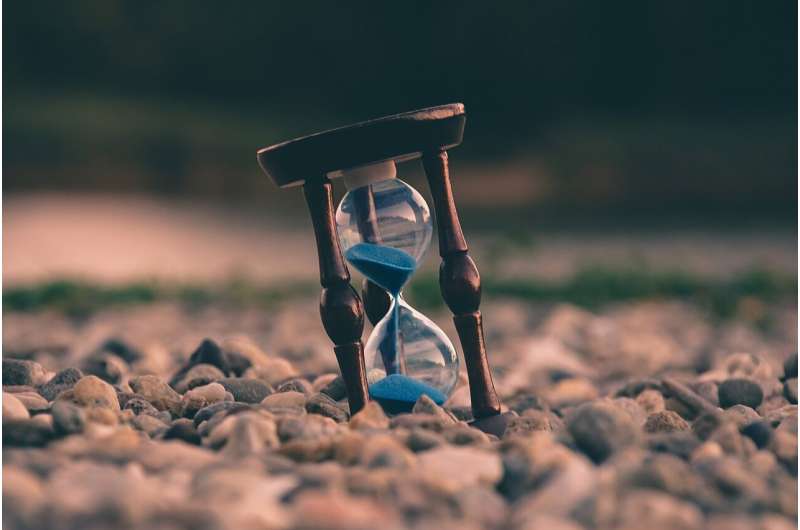Distorted passage of time during the COVID-19 lockdown

A survey conducted in the U.K. suggests that social and physical distancing measures put in place during the COVID-19 pandemic significantly impacted people's perception of how quickly time passed compared to their pre-lockdown perceptions. Ruth S. Ogden of Liverpool John Moores University, U.K., presented these findings in the open-access journal PLOS ONE on July 6, 2020.
Previous research suggests that one's perception of how quickly time passes can vary according to one's emotions, the number of daily tasks one must perform, and other factors. However, most of that research has been limited to normal day-to-day life. Social and physical distancing measures put in place during the COVID-19 pandemic provide a unique opportunity to examine how significant changes to life's daily routine impact time perception.
Ogden prepared an online questionnaire asking participants to rate on a sliding scale how quickly they felt time was passing compared to normal, both over the course of a single day and over a full week. The questionnaire also evaluated people's emotional state, task load, and satisfaction with levels of social interaction. The final analysis included 604 participants in the U.K. who answered the questionnaire between April 7 and April 30, 2020.
Ogden found that more than 80 percent of participants experienced changes to how quickly they perceived time passing during lockdown compared to pre-lockdown. Those who were older or less satisfied with their current levels of social interaction were more likely to experience slower passage of time over the course of a day or week. Slower passage of time over the course of a day was also associated with higher stress and a lower task load.
These findings suggest that significant changes to life's daily routine distort perception of time. Future research could look deeper into the effects of specific factors, such as whether social satisfaction influences perception of time during normal daily life, or if its significance in this study is due to the unique social impacts of the COVID-19 lockdown.
Author Ruth Ogden notes: "80% of people experienced distortion to the passage of time during the lockdown. Lockdown passing more slowly than normal was associated with older age and reduced satisfaction with social interactions."
More information: Ruth S. Ogden et al, The passage of time during the UK Covid-19 lockdown, PLOS ONE (2020). DOI: 10.1371/journal.pone.0235871


















